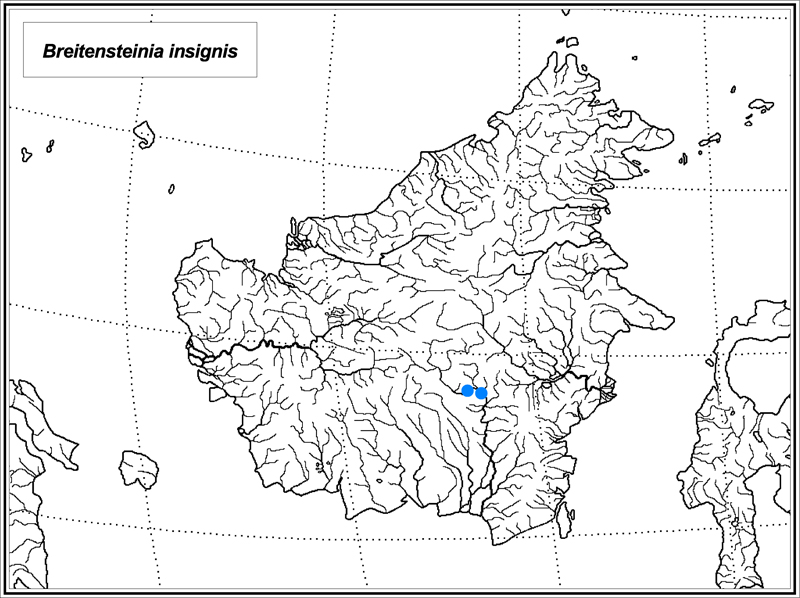
Breitensteinia insignis Steindachner 1881
Identification: Breitensteinia insignis is long and slender with a long low adipose ridge but no adipose fin, low neural spines in the caudal vertebrae, a long and slender caudal peduncle (34-37%% SL), a small eye (2-3% head length), the gill opening not extending above the pectoral fin base, 11-12 principal caudal rays, 5 branchiostegal rays, and 44-45 vertebrae. The broad, depressed head is covered with small, indistinct tubercles. Tubercles on the body are arranged in 5-6 horizontal rows on both sides. The anterior nostril is tubular, and the caudal fin has a straight posterior margin. The narrow occipital process reaches the predorsal plate. The posterior edge of the pectoral spine has 12-14 large serrae. Body and head dark brown above with scattered light brown spots, light brown to cream-colored below with few brown spots. Dark brown bands on fins. To 6 � in. (16 cm) total length.
Range: This species is found in the Barito River drainage in southern Borneo.
Habitat: B. insignis is found among woody debris in current in small to medium-sized rivers.
Similar species: B. hypselurus has a smooth posterior edge on the pectoral spine, a shorter caudal peduncle (26% SL), tall neural spines in the caudal vertebrae, and 42 vertebrae. B. cessator has a larger eye (4-5% head length) and brown spots evenly scattered on the dorsal and pectoral fins (not concentrated in bands).
Information from Ng, H. H. and D. J. Seibert. 1998. A revision of the akysid catfish genus Breitensteinia Steindachner with descriptions of two new species. Journal of Fish Biology 53:645-657.
